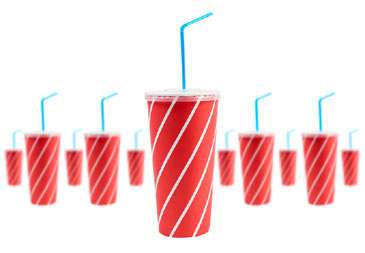Sickly Sweet: The Truth Behind High-Fructose Corn Syrup

In this article, you will find:
The ubiquitous sweetener
Sickly Sweet: The Truth Behind High-Fructose Corn Syrup
High-fructose corn syrup (HFCS) has become a favorite target of many health-conscious consumers, who contend that it is a major cause of the obesity "epidemic" in the United States. Indeed, some scientists are concerned by studies showing that animals fed a diet high in HFCS suffer negative effects. Meanwhile, groups such as the Corn Refiners Association and the American Beverage Association say that HFCS is being unfairly demonized. Should consumers be concerned? Here's what we know about HFCS.
What and Where Is HFCS?
HFCS is a sweetener and preservative that's made by breaking down cornstarch into sugars. Part glucose and part fructose, it has the exact number of calories per gram as the sugar derived from cane or beets. Like table sugar, it offers nothing in the way of nutrition: no minerals, no vitamins, no fats or proteins, and no fiber.
The food and beverage industries in the United States had good reasons to start using HFCS when it became available in the late 1960s. HFCS is extremely soluble and mixes well in many foods. It is sweeter than sugar, easy to store, and it extends the shelf life of foods. In addition, corn is cheap because of federal subsidies to corn growers, and tariffs on imported sugar make HFCS the cheaper choice. These benefits have made HFCS a staple ingredient of countless packaged and processed foods. In the United States, it is also the most widely used sweetener in carbonated soft drinks, juice drinks, and sports drinks.
HFCS can be found as a key ingredient even in products that are not necessarily sweet, such as salad dressings, soup, crackers, and even children's vitamins. These common foods may all carry HFCS:
- Pancake syrups
- Popsicles
- Fruit-flavored yogurts
- Frozen yogurts
- Ketchup and BBQ sauces
- Marinades
- Condiments
- Salad dressings
- Jarred and canned pasta sauces
- Applesauce
- Canned soups
- Canned fruits (if not in its own juice)
- Breads, crackers, and baked goods
- Breakfast bars
- Breakfast cereals - highly sweetened or not
- Fruit juice and fruit drinks that are not 100 percent juice

